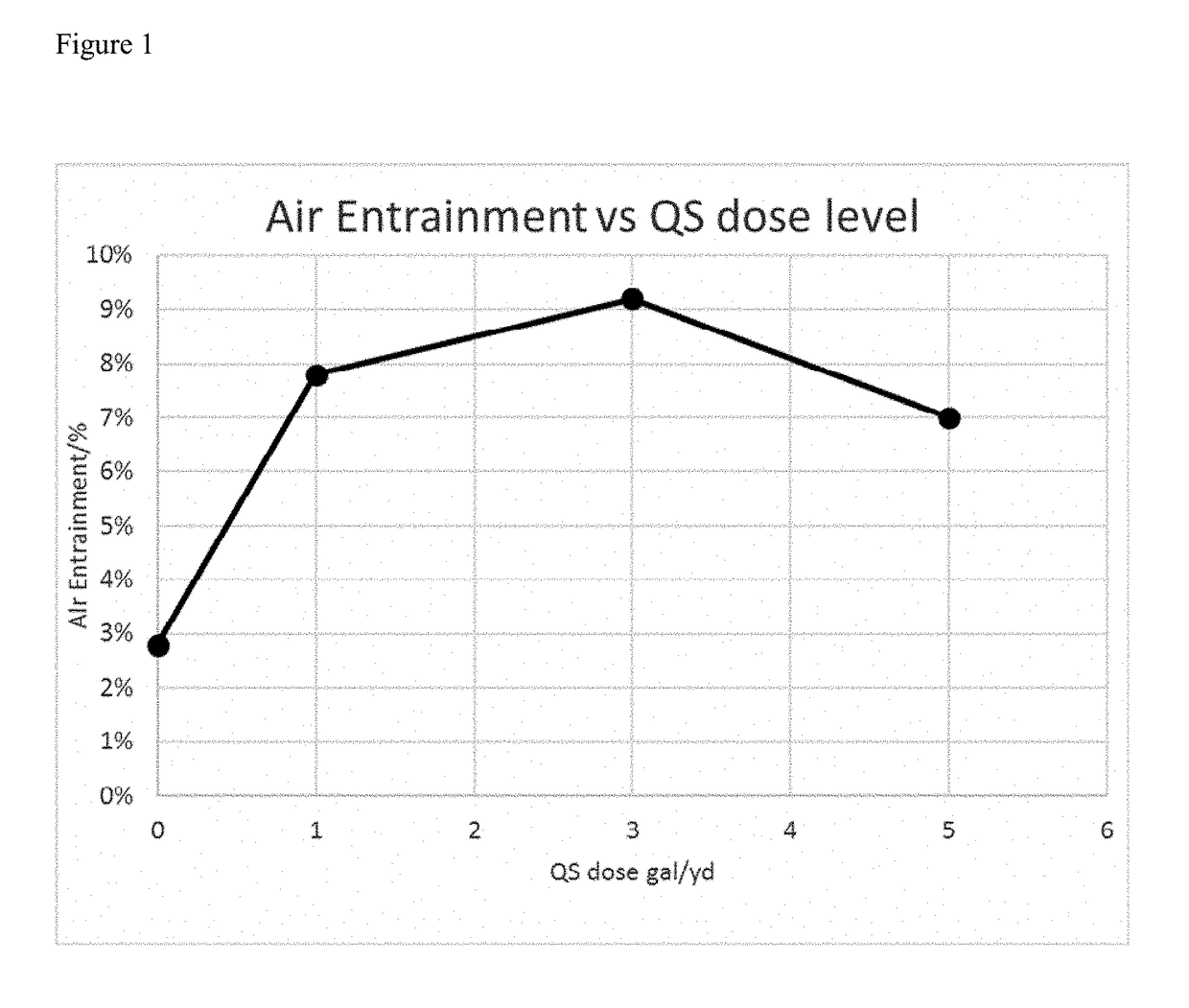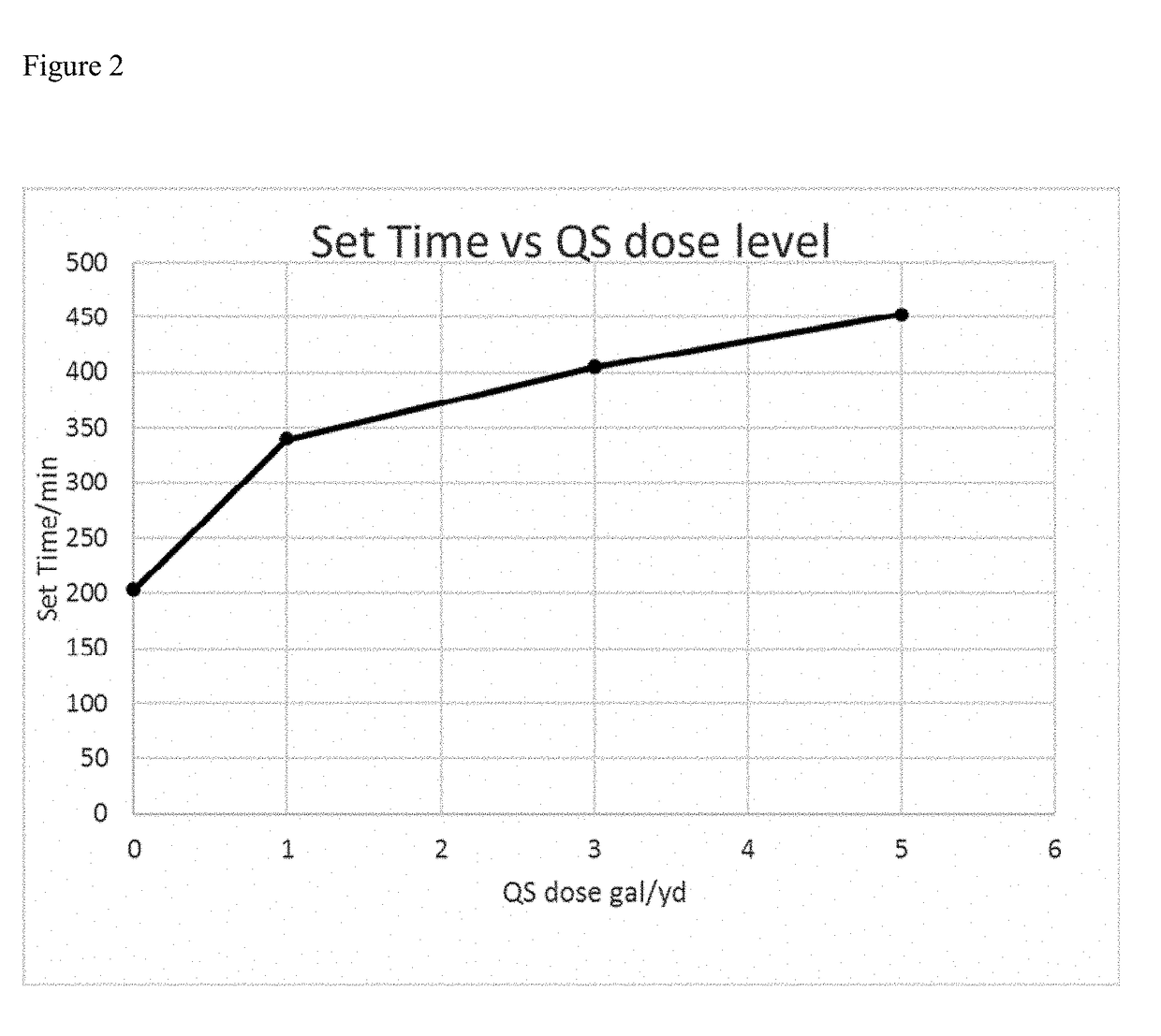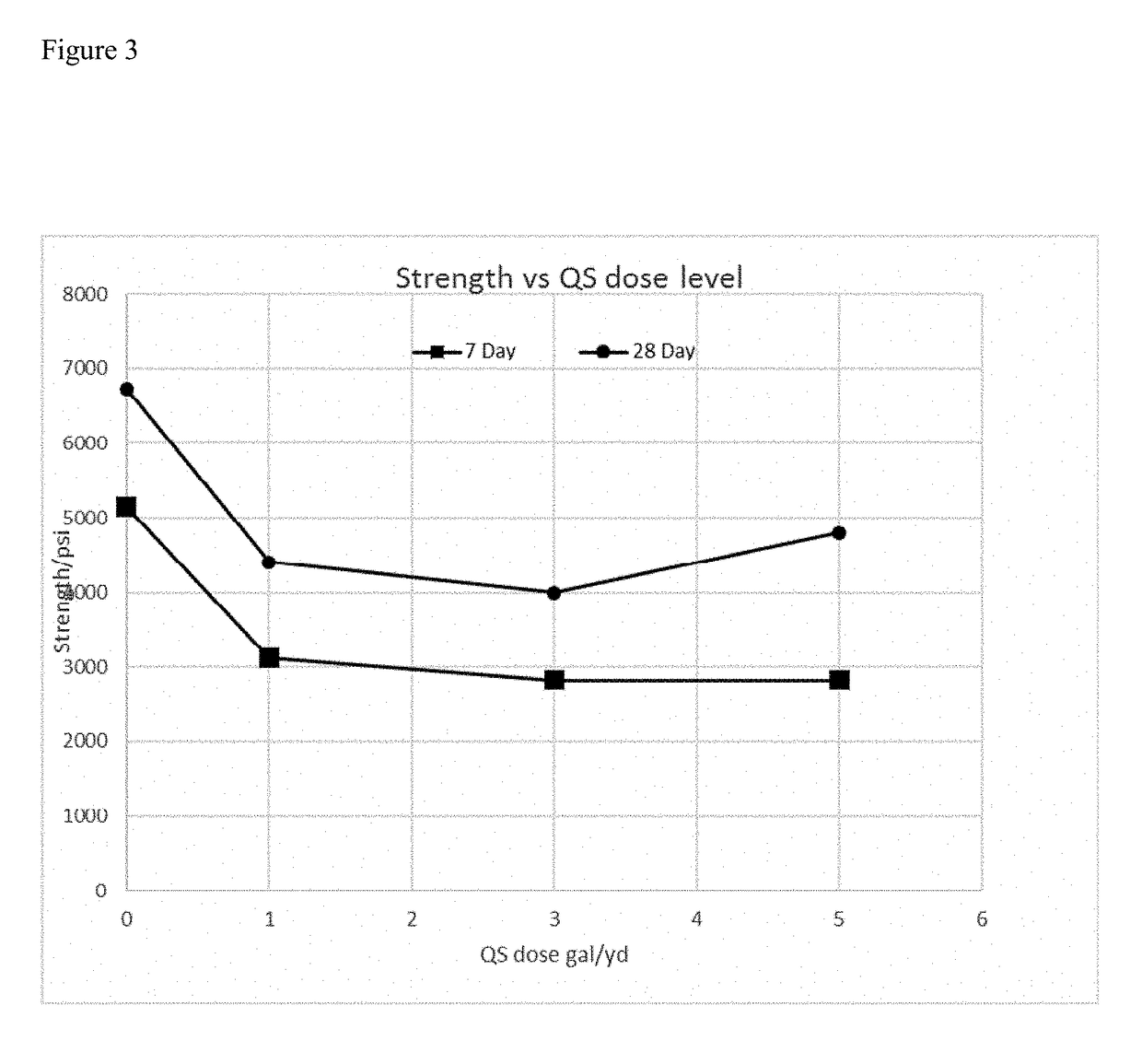Additive formulation for reduction or prevention of microbially induced corrosion in concrete or cementitious material
a technology of additive formulations and concrete, applied in the field of additive formulations, can solve the problems of higher leaching, fungicides may be vulnerable to water leaching, etc., and achieve the effects of reducing leaching, improving antifungal activity, and reducing the risk of contamination
- Summary
- Abstract
- Description
- Claims
- Application Information
AI Technical Summary
Benefits of technology
Problems solved by technology
Method used
Image
Examples
example 1
[0034]Table 1 indicates the MIC values generated against Th. Novella, Fusarium and a combination of the two for two antifungal additives that were tested in the aqueous state.
TABLE 1Active Ingredient Minimum Inhibitory Concentration ResultsStarkeyaFusariumStarkeya* +novella*oxysporumFusariumAntifungal / QS(ppm)(ppm)(ppm)QS7.815.631.3P2Untested250125IF4Untested500500*Starkeya novella and Thiobacillus novella are names for the same organism
[0035]The results in Table 1 indicated that in the aqueous state, the QS was a stronger antifungal (lower concentration required for efficacy) than the trialed antifungals.
[0036]In addition to testing the active ingredients alone, MIC tests were conducted for combinations of the QS and the antifungal actives. An OIT active material was added to this test using the QS molecule to compatibilize the mixture, making the mixture water soluble so MIC testing was possible. Table 2 summarizes the MIC data generated for these actives:
TABLE 2Active Combo Minimu...
example 2
Leachability of Fungal Additives
[0046]The leachability of antifungal additives was tested. A matrix of OPC concrete formulations was made using two water soluble antifungal additives P2 (Na OPP) and IF4 (Amazalil Sulfate), added to concrete mortar formulations with and without the QS additive as follows:
[0047]OPC with no additives
[0048]OPC with 5000 ppm IF4
[0049]OPC with 5000 ppm and 3 gal / cubic yd of QS with defoamer
[0050]OPC with 5000 ppm P2
[0051]OPC with 5000 ppm P2 and 3 gal / cubic yd of QS with defoamer
[0052]It was noted that 3 gal / cubic yd of the QS formulation corresponds to 1500 ppm of QS active by weight of the cement binder, with Tributyl phosphate (defoamer) mixed with the QS at 5% of the QS active level. Sample pucks were molded, cured and prepared for a water uptake test by drying in a 70° C. oven until weight loss had ceased. The pucks were then immersed into 30° C. water with their weight measured periodically to determine water uptake.
[0053]FIG. 5 is a graphical depic...
example 3
[0057]OIT was tested as an antifungal additive in conjunction with QS. Concrete samples were made and treated with formulations of 2:1 QS:OIT and 1:1 QS:OIT, with and without tributyl phosphate defoamer, and were tested using the water take up test discussed herein. The results are set forth in FIG. 7.
[0058]FIG. 7 is a graphical depiction of percent sample weight increase per time illustrating results of water uptake testing on 80% Ordinary Portland Cement (OPC) and 20% (GGBS or slag) concrete samples treated with a range of QS / OIT formulations with (WD) and without (ND) incorporated defoamer. The ratio in each formulation description was the ratio of QS to OIT active. The dose level of the QS / defoamer (gal / yd) was measured as the gallons per cubic yard of concrete of a 3.6% total active QS / OIT formulation in water. The sample pucks were dried in a 70° C. oven until the weight was stable for 24 h, then immersed into 30° C. water with their weight measured periodically to determine w...
PUM
| Property | Measurement | Unit |
|---|---|---|
| Percent by mass | aaaaa | aaaaa |
| Percent by mass | aaaaa | aaaaa |
| Fraction | aaaaa | aaaaa |
Abstract
Description
Claims
Application Information
 Login to View More
Login to View More - R&D
- Intellectual Property
- Life Sciences
- Materials
- Tech Scout
- Unparalleled Data Quality
- Higher Quality Content
- 60% Fewer Hallucinations
Browse by: Latest US Patents, China's latest patents, Technical Efficacy Thesaurus, Application Domain, Technology Topic, Popular Technical Reports.
© 2025 PatSnap. All rights reserved.Legal|Privacy policy|Modern Slavery Act Transparency Statement|Sitemap|About US| Contact US: help@patsnap.com



